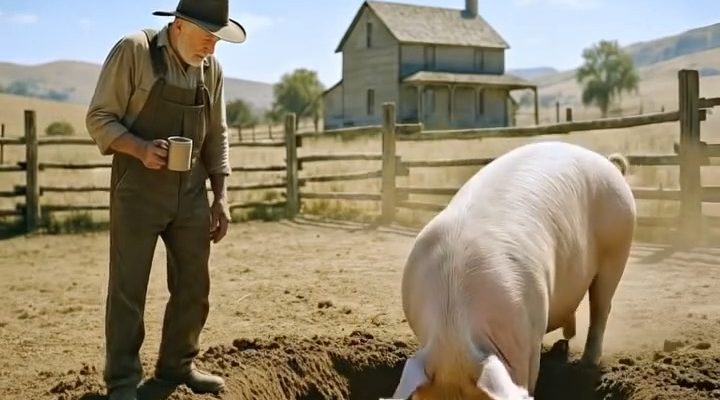The morning mist still clung to the pastures when I first noticed Chester’s odd behavior. My Hampshire boar, all three hundred pounds of him, had always been a creature of routine—methodical in his eating, predictable in his wallowing, and generally content to spend his days rooting through the soft earth in search of acorns and grubs that had fallen from the oak trees surrounding his pen. But on that Tuesday in late September, something had changed.
I had owned the small farm outside Millbrook for just over two years, having purchased it from a man named Harold Brennan who seemed eager to sell and move away from what he described as “too many memories.” The property came with twenty-three acres of rolling pasture, a sturdy barn that had weathered decades of harsh winters, and a modest farmhouse that needed work but had good bones. Most importantly for my purposes, it included several well-constructed animal pens that were perfect for the small-scale livestock operation I had dreamed of running since my retirement from teaching.
Chester had been my first major purchase after settling in—a prize boar from a respected breeder three counties over, chosen for his gentle temperament and impressive bloodlines. Despite his intimidating size, he was remarkably docile, more like a massive dog than the fierce creature many people imagined when they heard the word “boar.” He had settled into his new home with the easy contentment that comes from good food, adequate shelter, and the freedom to express his natural behaviors.
For three days running, I found him there each morning—snout buried deep in the dark soil, powerful legs churning as he excavated what was becoming an impressive crater. The spot was unremarkable, just another section of the pen that looked identical to every Read more below




